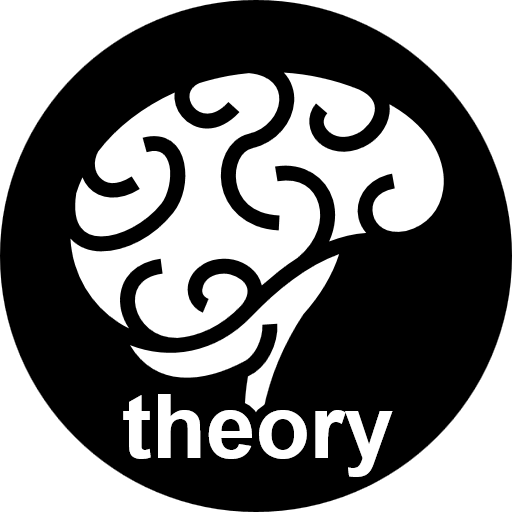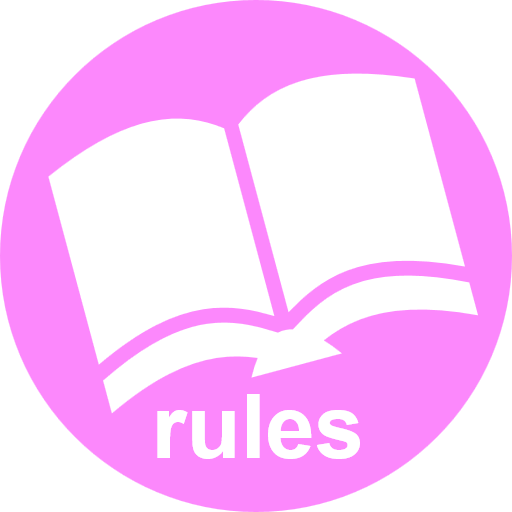Guest Post: The Matthew Effect--It’s Like the Runaway-Leader Problem, Only Worse
/By Doug Levandowski
Over the summer, I played my first game of Risk ever (and I call myself a gamer…for shame) with my brother and his wife. They had just picked a copy up and wanted to try it, having heard such good things about what a classic it is. So, because the offer of my brother’s home-made pizzas can get me to play pretty much anything, I agreed, and while he flattened dough, his wife and I set up the board and read the rules to them.
Half an hour into the game, things were not going well for either of them thanks to my snagging Australia early and playing like an aggressive jerk, one of my more endearing life skills. My brother, who was still graciously making pizzas while I stomped his troops, was eventually looking at the start of a round and saw me get a bunch of extra men for controlling territories and said, “Wait, what the hell is that? You’re winning so you get more stuff so you can kill more of my troops?” While his wife was telling him that he should listen when people explain things (which is probably a larger issue), it struck me: Yeah… That sucks, right? In what possible way could they come back after falling behind? (They couldn’t. The game ended when we all agreed we’d be able to keep speaking to each other if and only if we switched to Zombie Dice.)
In literacy education, there’s a name for this: the Matthew Effect. Specifically, it refers to a phenomenon whereby students who haven’t learned to read by the third or fourth year of school not only are always going to be behind their on-grade-level peers… but also are going to fall even farther behind. That is to say, a kid in third grade reading at a kindergarten level won’t be reading at a first grade level in fourth grade. He’ll be lower than that. And, to widen the gap between kids even more, a kid reading above grade level will improve more than one grade-level per year. Thus, the gap between a reader who is below grade level and a reader who is above grade won’t remain the same: It will widen over time.
The name comes from a verse from Matthew’s gospel in the Bible (25:27 to be exact), and the phrasing precisely captures the frustration inherent accompanying the effect: “For whoever has will be given more, and they will have an abundance. Whoever does not have, even what they have will be taken from them.”
If the Matthew Effect sounds like the often discussed “Runaway Leader” problem from which some games suffer, it’s much worse. Rather than the leading player just getting closer to the end more quickly, this effect also involves the losing players getting further and further from their goal as they get further into the game.
The Matthew Effect in Gaming
To put the Matthew Effect in gaming another way, imagine a simple roll-and-move game on a straight track where being closer to the end gives you two magical power. First, you can move yourself down the track more the closer you are to the end of the track. Second, you can choose an opponent to move backwards on each of your turns depending on how close you are to the end of the track.
There are 100 spaces on the board, and there are four sections of the board: +1 (spaces 1 through 25), +2 (spaces 26 through 50), +4 (spaces 51 through 75), and +8 (spaces 76 through 100). When you roll, you add the section’s number to your roll when determining how far you go. So, if you’re on space 22 and roll a 6, you move 7 spaces–but if you’re on space 82 and roll a 6, you move 14 spaces.
And, after you move, you can move an opponent back the same number of spaces. So, a player lucky enough to pull out ahead early would be much, much more likely to keep the lead–and likely to even extend the lead further–as the game goes on. Sounds like fun, right!?
And when I started thinking about it, the Matthew Effect is all over a lot of games–especially the older, longer games, where getting closer to the win condition is what helps you get to the win condition more quickly.
In Risk, you win by having all of the territory. And how do you get more territory? By using soldiers–which you get at the start of every turn because you already have a lot of territory–to throw bodies at your foes’ last strongholds, which rapidly depletes their already minimal sources, taking more from those who already have little. (Or the game ends when someone says, “Doug, if we don’t stop playing, we won’t give you pizza.” That ends games for me pretty quickly.)
In Monopoly, you don’t just win by having the most money. You win by taking everything from the other players and bankrupting them (or by having one of them flip the board after he lands on your fully developed orange monopoly for the third time in as many trips around the board and you start giggling uncontrollably). And, the more money you have, the better you can set up the board to take even more money from them. There’s really no way to catch up if someone pulls into the lead early. (And don’t say, “Free parking.” You don’t get money for free parking–and even if you play with house rules, it’s just as likely that the player already in the lead gets that money and pulls even further ahead.)
It isn’t just old games, though. Settlers of Catan is very guilty of this, too. Because how do you win? You get 10 victory points. And what’s a good way to do that? Build towns or cities…which give you more resources. So, the more resources you have, the more resources you’re able to get–and the more resources you get, the even more resources you can get, and on and on. But if you don’t have the right resources to start or get trapped in a corner of the board, you can’t get more resources and thus can’t get more victory points, falling even farther behind.
Or, a childhood favorite, Asshole, where winning one round means that the player who loses that round has to give you his two best cards–and you give him your two worst. It’s rare that the President is ever overthrown–and nearly unheard of that the President falls all the way to Asshole in a single round. I played a lot of Asshole in my formative years, and I can tell you: I saw it once, and it was a matter of everyone ganging up on a player who was doling out drinks a bit too liberally–and insisting that all of them be half whiskey, half Jager shots.
Overcoming the Matthew Effect
The really bad news about the Matthew Effect is that if there’s a core mechanic in a game that suffers from the Matthew Effect, there’s no good way to correct it–other than removing and replacing that mechanic. Catch-up mechanics are rarely, if ever, effective, especially because they tend to go against the theme of games–and, as Hyperbole Games notes, the mechanics that often seem like “catch-up” mechanics are actually ones that are there from the start. But, if the Matthew Effect is a problem in the game and there’s no intervention to pull the losing players up (or slow the winning players down–or both), the gap will just expand.
So, the only way to really prevent the Matthew Effect from negatively influencing a game is to avoid it in the first place.
(Side note: That said, it might make a lot of sense with certain themes to have the Matthew Effect featured prominently. In both Monopoly and Risk, the theme almost demands it, actually. In a capitalist setting, how do you make more money? By having a lot and investing it (and by screwing over people with less money)–so take out the Matthew Effect and you’d have mechanics that just don’t make sense. And if one superpower controlled the armies of the entire world except for Australia, would a ragtag bunch of Aussies be able to turn back the invasion? Not so much. So, neither of these games are bad games for having the Matthew Effect in them–but it does explain why it’s so frustrating to fall behind in either of them. You’ll never catch up.)
Avoiding the Matthew Effect
There are three broad ways to do this: 1) Have short rounds with hard resets, 2) Have the win condition and the way you get closer to the win condition be disconnected, or 3) Have the win condition actually hinder your ability to get closer to the win condition, thus making players farther away from victory better able to approach victory.
There may be more ways–and if there are, please let me know–but these were the three I could think of.
- Short Rounds and Hard Resets
I recently made a game called Circus Divas, which flagrantly lets the person with more money earn more (though not by taking it from the other player). You earn money by buying performers who then earn you more money–which you can use to buy more performers. If one player falls behind early on, it’s tough to catch up. But, once you know the game, it takes about 10 minutes to play an entire round–so even if you lose one round very badly, the next round is a whole new game with no benefit conferred from winning the first game. Thematically (that is to say, a pre-Dust Bowl traveling circus) it makes sense to be able to earn more money by having more money–but the game is so short that even if you fall behind, it’s over quickly.
In games where multiple rounds determine the winner, the Matthew Effect is less likely to have as big an impact on the game as a whole because of those hard resets between rounds. Each time the deck is reshuffled in Hearts, for example, it doesn’t matter who was taking most of the tricks the game before. The first suit is clubs, and whoever has the 2 starts the game. So, each round is, really and completely, its own entity–and rounds of Hearts are pretty short. So, even if the trump suits aren’t coming up in your favor, you’re just a shuffle away from being back in the running.
- Unrelated Win Conditions
But, if you want to avoid the Matthew Effect entirely, the first means won’t actually do that for you; it will just make it hurt for less time. If you really want to avoid it, you need to see to it that it doesn’t get easier to win the game as you get closer to winning.
One of my favorite games of the past two years is Legendary. After the co-op win (and co-op games don’t usually have any Matthew Effect problems, as people are more than happy to get into a lead and have that propel them, as a team, to a win, like in Pandemic) by taking down the Mastermind, the way the individual winner is determined is by the points earned from taking down villains, henchmen, and the mastermind and rescuing bystanders. But, if I defeat Juggernaut, I’m no better able to defeat any other villains in the game. My ability to defeat an earlier villain usually has no bearing on my ability to defeat a villain later in order to earn more points. So, there’s no Matthew Effect there.
That said, other than the amount of time it takes to set the game up (and how I have no idea what the right way is to put things back in the damn box), the only element I don’t like is that, in all cases, defeating a Mastermind earns that player some bonus–when they’ve already earned a boatload of points for taking him out. Still, that’s a one-time benefit–so it’s not so bad.
- Hindering Win Conditions
These are pretty few and far between, but the best example I can think of is in another one of my favorite games, Dominion. In case you’ve been under a rock, in Dominion you use money from your hand to buy cards from the center of the table and add them to your deck. When you start out, your hand size and the value of the cards in your hand are such that you can’t buy the most expensive cards that give you victory points, the only win condition (at least in the base set).
Here’s the thing, though: In the base set, the cards that give you victory points do nothing to help you earn more victory points. In fact, they slow down your progress, clogging up space in your hand as unusable cards. From the standpoint of working against the Matthew Effect, this is brilliant: The more victory points you have, the harder it is to get more victory points. So, while playing, players have to decide when–if ever–to buy lower-value victory point cards and clog up their hand–or whether they just go for the most valuable ones. Most successful strategies rely on a middle ground between the two.
And what, in my opinion, really works about this mechanic is that it doesn’t feel forced at all–and it isn’t based on luck (beyond the shuffle of the cards). You the player have no one but yourself to blame if you wind up with a deck clogged with nearly useless Estates thanks to some foolish early-game purchases. And, in some situations, it might be a great idea to start snapping up Estates–but usually, they’ll just clog your deck if you try to rush to be in the lead too quickly.
(In contrast, imagine what Dominion would be like if the player with the most money in his or her deck at the end of the game won. How do you get money? By having it to spend! And then what? That’s it!! Just grab all the gold you can–and maybe some cards that let you take multiple buys!)
Another way to do this is what they do in a game like Love Letter, where there are two different ways to win: Have a higher-value card or have a lower-value card with better effects. For example, if you have a Guard and can guess a player’s card, that player is out of the game. But the Guard only has a value of 1–literally the worst value in the game. On the other hand, the Princess has a value of 9–the highest value in the game–and has an effect that can only be bad: If she leaves your hand for any reason, you lose. The values in the middle are similarly balanced, making Love Letter a great example of avoiding the Matthew Effect.
So, What’s the Moral of the Story?
When designing games and seeking to avoid the Matthew Effect, make sure that what players need to do win doesn’t help them win even faster. And, if possible, make it so that players, as they get closer to winning, have even more trouble getting closer to the end–but because of the decisions that they make, not because of the rolls of dice or pure bad luck.
Doug Levandowski is on Twitter as @levzilla and @meltdowngames. He is the co-founder of Meltdown Games, which will be relaunching Gothic Doctor on Kickstarter this summer, and a monthly contributor to BGG’s 24 Hour Contest.












